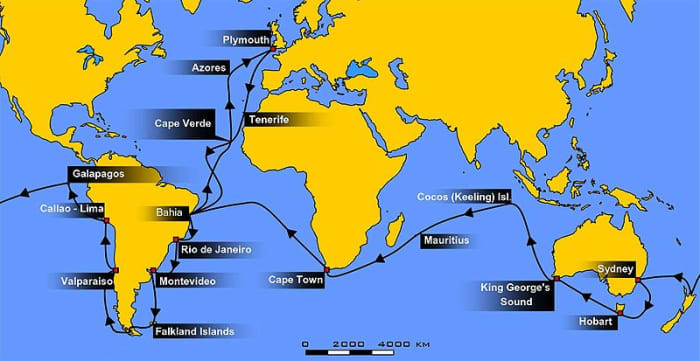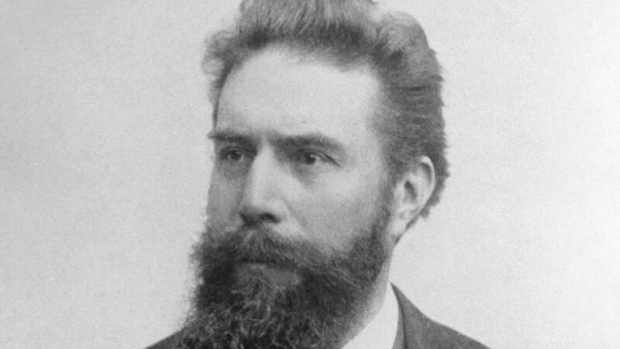What Is Darwin Day and Why Is It Celebrated?
What Is Darwin Day?
Darwin Day is on February 12. It is celebrated every year on the anniversary of the birth of Charles Darwin, born in 1809.
Darwin Day is celebrated around the world. It is a day to honor Darwin for his contributions to science and to promote science in general.
The first February 12 celebration of Darwin Day occurred in 1909 at the New York Academy of Sciences at the American Museum of Natural History. After that, there were sporadic celebrations of Darwin Day sponsored by Humanist groups, science organizations, and universities.
In the United States, “Darwin Day” became an official holiday in 2015. The anniversary of Darwin’s birth was to honor Darwin and to celebrate “science and humanity.”
The International Darwin Day Foundation website at darwinday.org is a project of the American Humanist Association. The website serves as a clearinghouse for hundreds of Darwin Day celebrations around the world.
Darwin’s Contributions to Science
Charles Darwin is considered to be the founder of evolution science. His basic theory was presented in his book On the Origin of Species and his later book The Descent of Man. Darwin was a naturalist (a person who studies nature) who made a five-year round-the-world trip on HMS Beagle. During this trip, he collected fossils and specimens and studied botany, geology, and biological diversity in many different regions.
In a nutshell, Darwin concluded that through a process he called “natural selection,” species that successfully adapted to meet the changing requirements of their natural habitat thrived, while those that failed to do so died off.
As science progressed after the death of Darwin, his theories were borne out and refined. Darwin did not have the benefit of DNA; his discoveries were made through careful observations of the natural world and deductions.
A study of Darwin’s early life shows how his family and education were crucial influences on his body of work and his place in history.
The Influence of Darwin’s Family
Charles Robert Darwin (1809–1892) was born to a well-off family. His father was Robert Waring Darwin, and his mother was Susannah Wedgwood. The family’s wealth meant that Darwin could attend the best universities. It also meant that Darwin had no financial constraints upon his ability to pursue his scientific interests.
Darwin’s family also provided a rich intellectual heritage. Darwin’s father was a medical doctor, and his paternal grandfather was Erasmus Darwin, a freethinking physician who wrote Zoonomia; or, the Laws of Organic Life (1794–'96), a two-volume medical work that dealt with anatomy and the functioning of the body, pathology, and psychology and also included early ideas about evolution.
Darwin’s family also predisposed him to become a freethinker, a person who forms his ideas and opinions through independent reason even when his reasoning differs from established belief, especially religious belief. As noted above, his paternal grandfather was a freethinker. Additionally, his maternal grandfather, Josiah Wedgewood, was a Unitarian. Unitarianism was a religious sect that broke away from mainstream Protestantism because of its denial of the doctrine of the Trinity.
The Influence of Darwin’s Education
Darwin attended the traditional Anglican Shrewsbury School between 1818 and 1825. Science was frowned upon at this school—it was considered dehumanizing. Darwin’s interest in chemistry was mocked. Darwin hated the rote learning favored at this school and did not do well there.
Chemistry, Geology, and Zoology
His father sent him to Edinburgh University to study medicine (1825–1827). Although Darwin loathed the practice of medicine, he received an excellent education in science. Darwin was taught chemistry, geology, and zoology. He also learned about the classification of plants by the then-modern “natural system.”
Recommended
Robert Edmond Grant, a biologist and early evolutionist, became a mentor to Darwin. Grant, an expert on sponges, was studying the relationships of primitive marine invertebrates. He believed his work would lead to understanding the origin of more complex creatures.
Grant encouraged Darwin to study invertebrate zoology. Consequently, Darwin began to study the larval sea mat (Flustra). He presented the results of his observations at the student societies.
Free-Thinker Ideas
Darwin was also exposed to the ideas of free-thinkers at Edinburgh University. At the time, this university harbored many students who were part of a group known as the “English Dissenters” because they refused to conform to the teachings and practices of the Church of England. This community exposed Darwin to radical ideas—The divine design of anatomy was disputed, and materialism (the unity of mind-body) was proclaimed.
Darwin attended Edinburgh University for only two years. These years were formative years for him. They introduced him to the pursuits of science and predisposed him to his eventual rejection of religious doctrine.
In 1828, Darwin’s father sent him to Christ’s College, Cambridge, to study for the ministry. Darwin’s father thought the Church was the best place for his son, whom he viewed as an aimless naturalist.

This photo depicts the journey of the HMS Beagle, which visited many countries during its five-year journey.
The Voyages of the HMS Beagle
In 1831, Darwin began his journey on the HMS Beagle at the age of 22. He sailed as a self-financed companion to the 26-year-old ship’s captain, Robert Fitzroy, who planned to survey coastal Patagonia (the lower half of South America). Over the course of a five-year voyage, the ship circumnavigated the globe.
Darwin spent only 18 months on the ship. He disembarked at various ports for long periods, traveling on his own to conduct explorations, collect specimens, and discover fossils of extinct animals. He also made many geological observations documenting the rise and fall of land masses.
On the last leg of the voyage, as the ship sailed home to England, Darwin finished his 770-page diary, organized his voluminous notes (1,750 pages), and compiled 12 catalogs of his 5,436 specimens (skins, bones, and carcasses). However, he still had not put all the pieces together into one coherent theory.
Darwin Devises His Theories, but Is Afraid to Publish
Darwin frequently consulted with other scientists while developing his theory of evolution. Their research informed his ideas. He eventually came to his theory of “transmutation” by “natural selection”; the word “evolution” would not be used until later.
In 1839, he married his cousin, Emma Ridgewood, and settled into a comfortable life. Darwin had become a very rich man in his own right. He wrote many successful books about his travels and natural science and made good investments.
On the Origin of Species
He had become a very successful scientist with worldwide acclaim. He published many volumes of work, yet he held back his most important work, On the Origin of Species. Although he finished writing the book in 1839, it was not published until 1859.
Darwin feared the condemnation that would fall upon him if he contradicted the church. The church taught that humans were at the pinnacle of God’s creation. Darwin did not see creation as a ladder, with each new species superior to the ones before it. He saw species extending outward, not upward.
When Darwin confided his thoughts about evolution to his devoutly Christian wife, she was shocked. Darwin saw in her reaction how the whole of society would react. He decided it was too dangerous to publish his work.
Darwin was right to be fearful. He was mocked mercilessly after On the Origin of Species was published. But Darwin had the last laugh; the first edition sold out on the first day. There have been many subsequent editions, including the 150th Anniversary Edition published in 2003.




